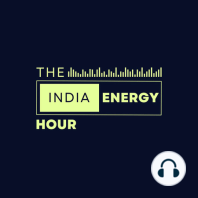76 min listen

COP26: Negotiations, Targets and Realities (Part-I) | Episode 16
COP26: Negotiations, Targets and Realities (Part-I) | Episode 16
ratings:
Length:
85 minutes
Released:
Oct 19, 2021
Format:
Podcast episode
Description
COP26, which is the world’s biggest climate change conference, is only two weeks away. Policymakers from over 200 countries will gather at Glasgow to discuss how to move forward with a more ambitious climate agenda. We at the India Energy Hour are really excited to publish two episodes focusing on COP26. We have interviewed two eminent guests who know the ins and outs of COP meetings. This is the first of two episodes.
As we look ahead to COP26, we need to look back at the past climate conferences to understand how climate negotiations work, how they have changed over the years and how India's position evolved over time. The upcoming climate conference or COP26 in Glasgow, could turn out to be like nothing before or just as same as earlier COPs. There are expectations that developing countries will take center stage and seek more climate finance. India has made its stance stronger around its ambitious green energy plans along with fossil fuel growth, while it asks the developed world to fund its climate action.
In the first of two special episodes on COP26, we interviewed senior journalist Nitin Sethi who has attended and closely followed climate negotiations and COP conferences for close to two decades. Nitin is a member of reporters collective and a partner at Land Conflict Watch.
Follow TIEH podcast on Twitter, Linkedin and YouTube.
As we look ahead to COP26, we need to look back at the past climate conferences to understand how climate negotiations work, how they have changed over the years and how India's position evolved over time. The upcoming climate conference or COP26 in Glasgow, could turn out to be like nothing before or just as same as earlier COPs. There are expectations that developing countries will take center stage and seek more climate finance. India has made its stance stronger around its ambitious green energy plans along with fossil fuel growth, while it asks the developed world to fund its climate action.
In the first of two special episodes on COP26, we interviewed senior journalist Nitin Sethi who has attended and closely followed climate negotiations and COP conferences for close to two decades. Nitin is a member of reporters collective and a partner at Land Conflict Watch.
Follow TIEH podcast on Twitter, Linkedin and YouTube.
Released:
Oct 19, 2021
Format:
Podcast episode
Titles in the series (62)
Episode 3 - Gas as a bridge fuel: a dream too far-fetched? by The India Energy Hour Presented by 101Reporters